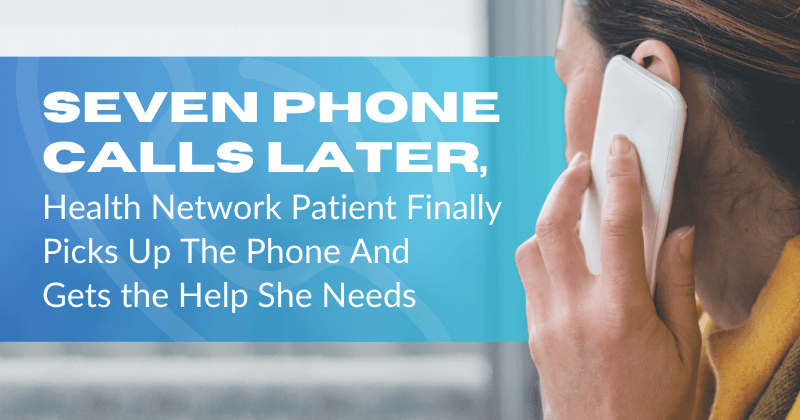Seven Phone Calls Later, A Health Network Patient Finally Picks Up The Phone – And Gets the Help She Needs

Health Network Associates help migrants find care anywhere in the world. But the job is heavy with almost impossible tasks: find care for people without insurance, without income, frequently with no understanding of the US health system and with low English language skills, as new residents in a town they’ve never been in before. Stay in contact with a patient who doesn’t have any reason to trust you, is scared about the immigration process, doesn’t have any money to buy data for the phone, and is actively moving across the country. Get medical records forwarded from overtaxed health center to overtaxed health center as the patient moves. Inevitably, Health Network Associates hit barriers, dead-ends, and obstacles. But they often push through, regardless.
That’s what happened in the case of Sofia,* an eight-year-old asylum seeker from Russia. Last year, she was enrolled in Health Network’s Specialty Care Access Network at an immigration shelter at the US-Mexico border with a diagnosis of hydrocephalus, the buildup of fluid in brain cavities. Common symptoms for children with hydrocephalus include headaches, poor coordination or balance, vision issues, and abnormal eye movement. Without prompt treatment, Sofia could sustain permanent brain damage – so Health Network jumped into action. Luis Retta was first assigned to Sofia’s case, and he called Sofia’s mother three times. The case was then passed to Camila Velasquez, who called Sofia’s mother another four times. “I also sent three separate text messages about MCN and how we’d like to help. The fourth one was a closing text,” a final message to patients to let them know that the Health Network Associate is closing the case due to lack of communication. But Camila is strategic with her messages. “I send the closing text message, and then I wait a day or two before I send the case to close. I like to give patients or their families time to think about it,” she said. For Sofia, the strategy worked.
“The mom reached out with a different phone number, apologized for not answering, and then from there we really got the case going,” Camila recalled. She quickly got Sofia a primary care appointment at a health center so she could be linked up to her new medical home and receive a referral for a neurologist. Camila connected Sofia’s mother with a patient navigator who helped the family apply for temporary medical insurance. “She and I are in constant contact now,” Camila says. “She messages things like, ‘You have done so much, thank you, and here’s an update.’ I got medical records for Sofia today – it’s good to see they have been provided with so much care.”
Part of the reason for the delay in response from Sofia’s mother was the language barrier, Camila believes, as she had texted in English. “I always assure her I can call with an interpreter, but she wants to text in English,” Camila said. Health Network Associates are bilingual (English and Spanish) or multilingual, and they use an interpretation line as well, but language barriers still sometimes grow for migrants who are not Spanish- or English-speaking.
Camila kept Sofia’s case open, to make sure she continues to connect to her new neurologist and she is well connected with services in her new home. Then, when Sofia’s mother is ready, she’ll set the case to close.
*Patient name and some details have been altered to protect the patient’s identity.
- Log in to post comments
